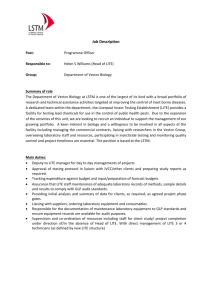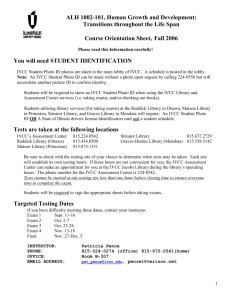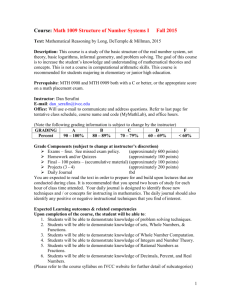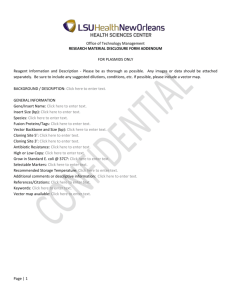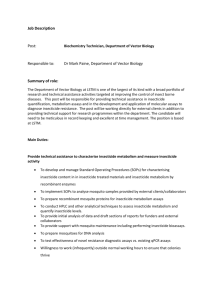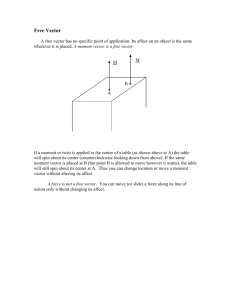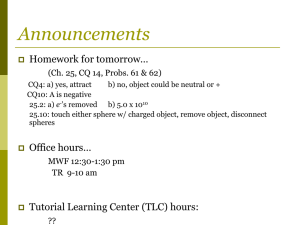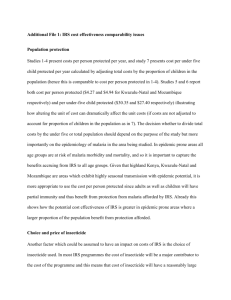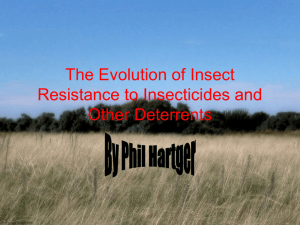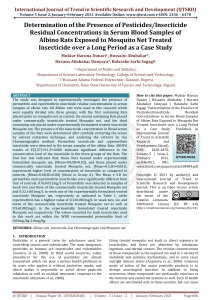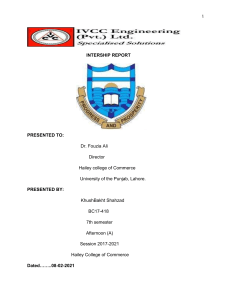Job Description Post: Post-Doctoral Research Assistant – Preparing
advertisement
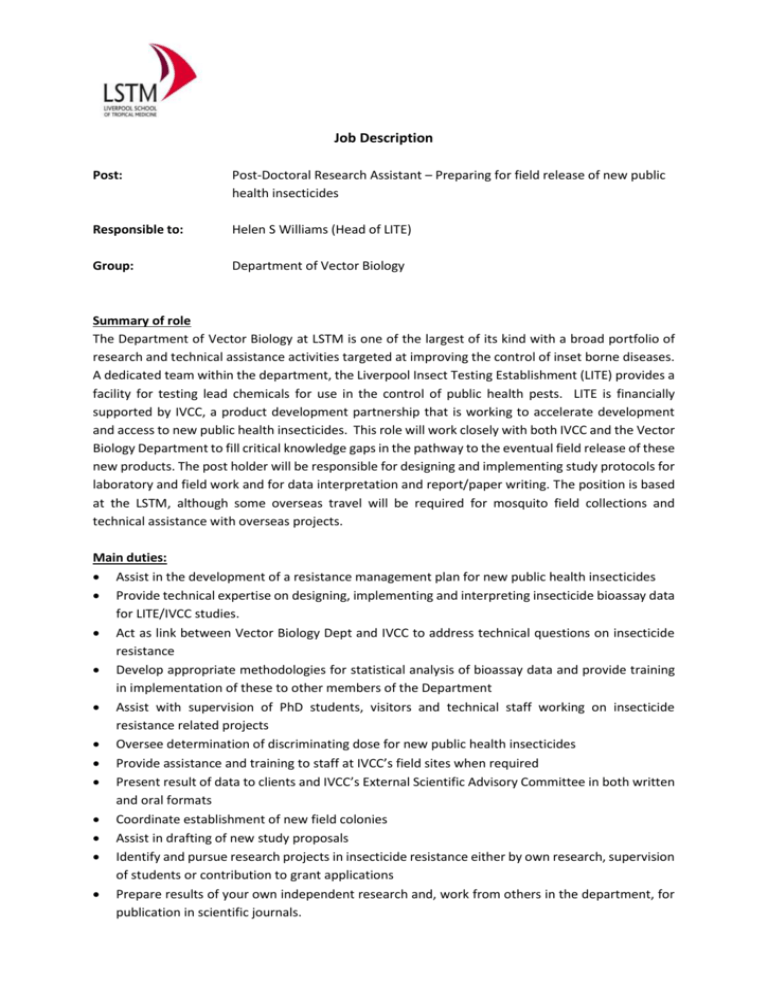
Job Description Post: Post-Doctoral Research Assistant – Preparing for field release of new public health insecticides Responsible to: Helen S Williams (Head of LITE) Group: Department of Vector Biology Summary of role The Department of Vector Biology at LSTM is one of the largest of its kind with a broad portfolio of research and technical assistance activities targeted at improving the control of inset borne diseases. A dedicated team within the department, the Liverpool Insect Testing Establishment (LITE) provides a facility for testing lead chemicals for use in the control of public health pests. LITE is financially supported by IVCC, a product development partnership that is working to accelerate development and access to new public health insecticides. This role will work closely with both IVCC and the Vector Biology Department to fill critical knowledge gaps in the pathway to the eventual field release of these new products. The post holder will be responsible for designing and implementing study protocols for laboratory and field work and for data interpretation and report/paper writing. The position is based at the LSTM, although some overseas travel will be required for mosquito field collections and technical assistance with overseas projects. Main duties: Assist in the development of a resistance management plan for new public health insecticides Provide technical expertise on designing, implementing and interpreting insecticide bioassay data for LITE/IVCC studies. Act as link between Vector Biology Dept and IVCC to address technical questions on insecticide resistance Develop appropriate methodologies for statistical analysis of bioassay data and provide training in implementation of these to other members of the Department Assist with supervision of PhD students, visitors and technical staff working on insecticide resistance related projects Oversee determination of discriminating dose for new public health insecticides Provide assistance and training to staff at IVCC’s field sites when required Present result of data to clients and IVCC’s External Scientific Advisory Committee in both written and oral formats Coordinate establishment of new field colonies Assist in drafting of new study proposals Identify and pursue research projects in insecticide resistance either by own research, supervision of students or contribution to grant applications Prepare results of your own independent research and, work from others in the department, for publication in scientific journals. Contribute to the teaching responsibilities of the Department of Vector Biology, either by delivering formal teaching or supervising MSc student projects. Represent the group at scientific meetings or consultations with external partners. To assist (if required) in the maintenance and husbandry of LITE mosquito colonies including bioassay procedures. Person Specification: Postdoc Medical Entomologist Criteria Education & Training Experience Competencies Skills, Abilities and Knowledge Interests PhD in Medical entomology or equivalent experience Experience of developing laboratory and bioassay testing methods Experience of mosquito field collections overseas Experience of preparation of manuscripts for publication Ability to maintain records data and demonstrate effective record keeping, ability to write compliant SOPs (Standard Operating procedures) Experience of rearing insects Previous experience of field work Previous experience of insect field collections Experience of training students and staff Experience of working to health and safety regulations and legal requirements , and writing of relevant risk assessments Essential Desirable E E E E Assessment Application Form/CV Application form/CV, Assessment & interview E D E D D D E Knowledge of insecticide resistance Good knowledge of statistics Excellent verbal & written communication skills, with the ability to communicate at all levels Ability to provide laboratory/project supervision Ability to work as an integral and cooperative member of a multi-disciplinary team Ability to read large volumes of scientific literature and summarise important points. Numerate, with good working knowledge of Microsoft Office packages Excellent time management and organisational skills Adaptable and able to work under different conditions, and hot, humid conditions (insectary husbandry) Excellent time management skills E E An enthusiasm for contributing to a multidisciplinary program and working towards the goal of improving vector control Scientifically inquisitive E E E E E E E Application form/CV, & interview E E E Application form/CV & interview
